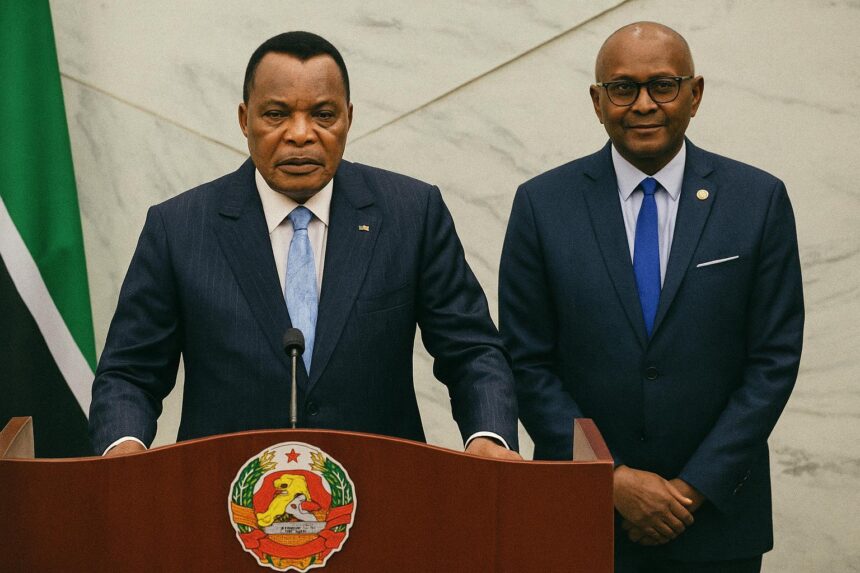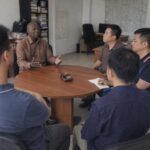Brazzaville’s Concerted Diplomatic Score
From the air-conditioned corridors of Cape Town to the humid salons of Port-Louis, Congolese envoys have multiplied handshakes with a single refrain: rally behind Edouard Firmin Matoko for the UNESCO helm. The itinerary, orchestrated between 21 and 29 July at the behest of President Denis Sassou Nguesso, bears the tempo of a chamber orchestra rather than a marching band, yet its resonance across African capitals is unmistakable. Foreign Minister Jean-Claude Gakosso personally conveyed letters from Brazzaville to his counterparts and, in several instances, to heads of state, underscoring what he called “the continental moment for scientific and cultural stewardship” (Congo MFA communique, July 2025). His hosts, including President João Lourenço in Luanda and senior SADC officials in Gaborone, responded with polite enthusiasm and promises of further consultation, revealing the subtle calculus required to convert cordiality into votes inside UNESCO’s Executive Board.
Matoko’s Profile and UNESCO Legacy
Edouard Firmin Matoko is no neophyte in the Maison de l’UNESCO. Currently Assistant Director-General responsible for priority Africa and external relations, he has spent more than twenty years navigating the institution’s crosscurrents. Colleagues describe him as a conciliator able to translate technical jargon into policy speak, a skill honed during earlier postings in Yaoundé, Paris and New York (UNESCO Secretariat, 2024). His doctoral training in information sciences from Université Paris VIII and fluency in English, French, Portuguese and Lingala enrich a candidacy that implicitly argues for managerial continuity rather than rupture. In discrete briefings, Matoko emphasises balanced budgeting, reinforcement of field offices and the imperative to align UNESCO’s scientific programmes with the African Union’s Agenda 2063. Such propositions resonate with member states seeking predictability after a decade marked by compulsory arrears and geopolitical strain.
African Solidarity and Geopolitical Stakes
Yet curricula vitae seldom decide multilateral elections on their own. The African Union traditionally endorses a single candidate to avoid vote fragmentation, and Brazzaville’s diplomacy works toward that consensus. Pretoria’s early indication that it will “generate momentum within SADC” for Matoko (South African Presidency briefing, July 2025) hints at a regional compact, while Maputo and Gaborone have signalled analogous openness. Analysts in Addis Ababa, however, caution that North African delegations, historically influential in UNESCO governance, may balance continental aspirations against Mediterranean partnerships. Beyond Africa, Paris and Madrid measure candidates by their capacity to mediate sensitive files such as cultural restitution and digital platform regulation. Washington, for its part, has resumed full engagement with UNESCO only recently and seeks leadership committed to depoliticising technical committees. Against that background, Brazzaville positions Matoko as an interlocutor capable of coupling African priorities with broader systemic repair, thus offering an attractive bridge for diverse constituencies.
Anticipating the October Ballot
The formal campaign window closes in September, after which Executive Board members will proceed to successive secret ballots in Tashkent this October. With three candidates currently wp-signup.phped (UNESCO Executive Board docket, March 2025), a first-round absolute majority remains plausible but not guaranteed. Brazzaville’s envoys are therefore cultivating so-called fallback alliances, especially among small island developing states where Matoko’s expertise in coastal resilience programmes strikes a chord. The Congolese strategy also leans on soft power assets, from cultural troupes dispatched to francophone embassies to promises of increased voluntary contributions to UNESCO’s flagship funds. Observers note that such pledges, while routine, acquire special weight when delivered in person by a long-serving head of state, and President Sassou Nguesso’s personal messages to voting capitals accentuate that gravitas. The calculation is simple: every cordial phone call now could spare an unpredictable fourth ballot later.
Long-Term Implications for Multilateralism
Should Matoko prevail, he would become only the second sub-Saharan African to guide UNESCO since Amadou-Mahtar M’Bow’s thirteen-year tenure ended in 1987. Diplomats canvassed in Nairobi and Brussels argue that such an outcome would symbolise a recalibration of multilateral governance toward demographic realities, rather than a mere continental trophy. For Congo-Brazzaville, the dividends would be reputational: the nation would gain an elevated voice in arenas where educational technology, cultural heritage protection and open science norms are debated. For UNESCO, a director-general deeply conversant with both headquarters culture and field exigencies might reinforce institutional cohesion at a moment when normative mandates—from AI ethics to underwater archaeology—outpace budgetary growth. Even in the scenario of a narrow loss, Brazzaville’s campaign underscores the maturation of African diplomacy, moving beyond protest rhetoric to proactive agenda-setting. In that sense, the current tour is less a solitary sprint than an overture to sustained African agency within the UN system.




















